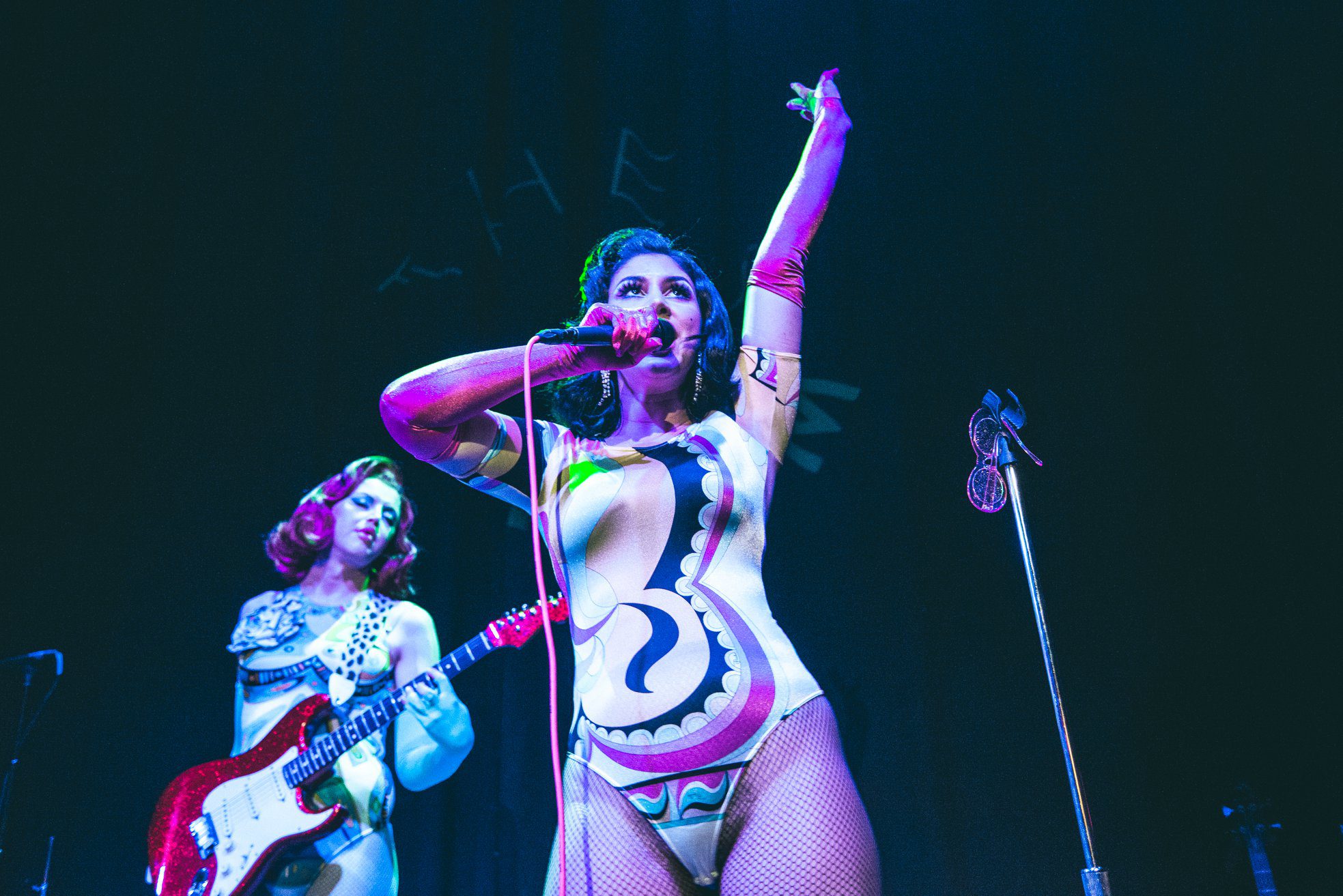Róisín Murphy Releases The Disco We Need Right Now


More than a decade ago, Róisín Murphy had talked to Sheffield-based producer Richard Barratt (aka Crooked Man and DJ Parrot) about taking their collaborative work from her album Overpowered further.
“It was intended to be a big project at the start, but we got waylaid a few times,” says Murphy by phone from her home in London. Murphy wanted to dig deeper into the styles of dance music and club culture that they both knew – everything from disco to rare groove to electro – “with this feeling of Sheffield in it somehow as well.”
They came up with “Simulation” and “Jealousy,” both of which were released as singles, over a period of a few years. Then they went on to other projects. Murphy covered Italian songs on the EP Mi Senti, and released the albums Hairless Toys (2015) and Take Her Up to Monto (2016). She collaborated with producer Maurice Fulton, something that she had been wanting to do for years. When Barratt released their track “Incapable” through his own label, Bitter End, the single became a club hit and led to a record deal.
Out on October 2, Róisín Machine is the fifth solo full-length from the revered singer, who came to prominence in the 1990s as half of the duo Moloko. It is a ten-song journey through the dance floor influences that have shaped Murphy’s life and career, filled with spacey synths, epic strings, slow grooves and banger beats. All these elements are linked together by an impassioned voice that can make you forget your troubles for a moment, even when she is singing about the thing that’s bringing you down. Róisín Machine is the disco album we need right now.
“I feel my story is still untold,” Murphy announces at the start of Róisín Machine. She tells this story – at least part of it – through the musical choices on the album as well as the through its visual presentation, drawing from post-punk art and fashion. It’s inspired in part by an exhibition from artist and musician Cosey Fanni Tutti. Another inspiration was reading about ’80s clubs like New York’s famed Danceteria, where DJs mixed genres like rock and pop and soul, bringing together diverse crowds. “This is what I’ve grown out of,” she says, “the scenes that I’ve been involved in and have grown out of – this mix.”
Born in Ireland, Murphy was 12 when she moved to Manchester and came of age as the city’s club scene flourished in the late ’80s and early ’90s. “I went to Hacienda, obviously. It wasn’t my favorite because it was too big and didn’t sound that great,” she says. “I really like clubs that envelope you, so there were a few of those types of clubs in Manchester.”
At 18, she moved to Sheffield. “The whole thing had an ecosystem, whereby everybody was doing something in Sheffield,” she recalls. She would see the same DJs play multiple times a week. “It wasn’t like you had a checklist of a gazillion DJs to say I had seen,” she says. “You got to see your guys and your scene and they had enough education and understanding and breadth of knowledge of music to last three lifetimes just listening to them.” In Sheffield, she and producer Mark Brydon formed Moloko.
Shortly after the release of Moloko’s debut album, Murphy headed to New York and explored the city’s club scene. She immersed herself on the dance floor of parties like Body & Soul. “It blew my mind,” she says. Murphy recalls watching the eclectic mix of dance styles on the floor and trying to follow the movies – “Badly, in my case,” she adds – while coming to understand the music and its origins.
She also met Francois Kevorkian, the longtime DJ and producer/remixer who co-founded Body & Soul. “He called everything disco. He would talk about house records. It’s a disco record. It would be some sort of dub techno disco record,” she says. “So, I realized that everything was disco when I was there.”
In the years that followed, Murphy herself would become a disco queen. Moloko released four albums between the mid-1990s and early- 2000s. Notably, their hit “Sing It Back” remains a dance floor favorite. As a solo artist, Murphy kept fans hooked with songs that compel you to dance and sing and release every bit of tension held inside of you.
Fast forward to spring of 2020. Most of the world was shut down due to the COVID-19 pandemic and it was now obvious that the future of nightclubs was in a precarious state. Online, though, Murphy brought us disco from her home with a six-song collection of performance videos. She appeared in shimmering costumes, bouncing around in front of a sofa and chair as a collection of video footage surrounded, and sometimes seemed to engulf, her. These were based on the live show she had put together for dance clubs.
In late September, she released another isolation performance video, this time from Ibiza, where she sang “Something More” while roaming the grounds of a villa, giving a bit of daydream fodder to those still mostly stuck at home.
Róisín Machine is more than the album. It’s also all the associated remixes and alternate versions of this body of songs. “The attitude to the album was almost like this was a proper album somewhere else and we dubbed it, or we augmented it, changed it,” Murphy explains, “and all this music that we’re into comes out of this idea of dubbing and extending and changing and the record never being finished.”
It became music made for a time when everything is in flux. Remixes of “Incapable” and “Narcissus” were disco that moved club kids pre-pandemic. The album could certainly be disco for the home. Certain tracks, or remixes of songs, might be part of the score for virtual club nights. The videos are there for when you’re craving live shows. And when venues start reopening, there’s enough variety in the material to find something that works no matter what kind of restrictions are placed on DJ nights. Though the future of the nightlife that inspired the album is incredibly uncertain, Róisín Machine provides all-purpose disco for whatever comes next.
Follow Róisín Murphy on Facebook for ongoing updates.




